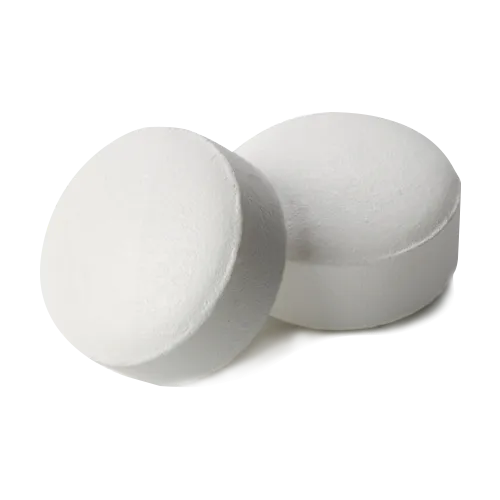Overview
Prednisone is a corticosteroid medication used to treat a wide range of inflammatory and autoimmune conditions. By mimicking adrenal gland hormones, it reduces inflammation and suppresses immune system activity, effectively managing conditions like arthritis, asthma, allergies, and autoimmune disorders.
History of Development and Approval
Introduced in the 1950s by Schering Corporation, prednisone gained FDA approval for various inflammatory and autoimmune conditions. Its versatility and efficacy, supported by decades of clinical research, have made it a cornerstone in treatment protocols.
Key Benefits
- Anti-Inflammatory Action: Reduces inflammation across tissues and organs.
- Immunosuppression: Manages autoimmune diseases by dampening immune responses.
- Broad Applications: Treats acute and chronic conditions, from allergies to lupus.
- Rapid Relief: Quickly alleviates symptoms like pain and swelling.
Unique Properties
Prednisone’s ability to modulate both inflammation and immune activity makes it highly versatile. Its availability in multiple forms—tablets, oral solutions, and injectables—allows tailored treatment for varying patient needs and condition severity.
Comparison with Similar Medications
Compared to other corticosteroids, Prednisone offers:
- Cost-Effective: Widely available and less expensive than some alternatives.
- Flexible Dosing: Easily adjusted for acute or chronic use.
- Broad Efficacy: Effective across a wider range of conditions than some targeted corticosteroids.
Safety and Tolerability
Prednisone is generally well-tolerated for short-term use, but long-term use may cause side effects like weight gain, insomnia, mood swings, and increased infection risk. Serious risks, including osteoporosis, hypertension, and diabetes, require regular monitoring by a healthcare provider.
Indications for Use
Prednisone is indicated for:
- Inflammatory Conditions: Arthritis, inflammatory bowel disease, dermatitis.
- Autoimmune Disorders: Lupus, rheumatoid arthritis, multiple sclerosis flares.
- Allergic Reactions: Severe allergies, anaphylaxis.
- Respiratory Conditions: Asthma, chronic obstructive pulmonary disease exacerbations.
Dosage and Administration
Adults: 5–60 mg/day, adjusted for condition severity, often tapered.
Children: 0.05–2 mg/kg/day, provider-guided.
Elderly: Start low, monitor closely.
Timing: Morning dosing with food to reduce stomach upset.
Notes: Taper doses to avoid adrenal suppression; follow regimen closely.
Mechanism of Action
Prednisone is converted to Prednisone in the liver, which inhibits inflammatory mediators and suppresses immune cell activity, reducing inflammation and immune responses.
Composition
Active Ingredient: Prednisone, drives anti-inflammatory effects.
Inactive Ingredients: Lactose, starch, magnesium stearate for tablet stability.
Side Effects
Common: Weight gain, insomnia, mood swings, increased appetite.
Rare: Glaucoma, cataracts.
Serious: Osteoporosis, hypertension, diabetes, infection risk require urgent care.
Prevention of Side Effects
Use lowest effective dose, taper gradually, monitor bone health and blood sugar. Take with food; report severe symptoms promptly.
Contraindications
Avoid in systemic fungal infections, hypersensitivity to prednisone, or live virus vaccines.
Warnings and Precautions
Monitor for infections, bone density, blood pressure, or glucose changes. Caution in diabetes, hypertension, or psychiatric conditions.
Drug Interactions
NSAIDs increase GI risk; CYP3A4 inducers (e.g., rifampin) reduce efficacy; vaccines may be less effective. Disclose all medications.
Overdose
Symptoms: agitation, high blood pressure, swelling. Seek emergency care immediately.
Pharmacokinetics
Absorption: Rapid, peak 1–2 hours.
Distribution: Widely distributed, protein-bound.
Metabolism: Liver to Prednisone via CYP3A4.
Elimination: Urine; half-life 2–4 hours.
Dosage Forms
Tablets (1, 2.5, 5, 10, 20, 50 mg), oral solution (5 mg/5 mL), injectable forms for flexible administration.
Pregnancy and Breastfeeding
Use if benefits outweigh risks (Category C); excreted in milk, consult provider.
Storage
Store at 20°C–25°C (68°F–77°F), dry, light-protected, away from children. Dispose expired properly.
Clinical Evidence
Trials confirm Prednisone’s efficacy in rapidly reducing inflammation and managing autoimmune symptoms across diverse conditions, with high reliability.
Conclusion
Prednisone is a versatile corticosteroid for inflammatory and autoimmune conditions, offering rapid relief and flexible dosing. Adhere to prescribed regimens, monitor effects, and consult providers for optimal outcomes.




